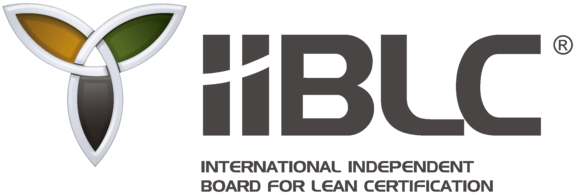
Join a new group to gain knowledge for your CGBL® exam preparation. Certified Lean Green Belt – Lean IIBLC®
CGBL® exam preparation program
Certified Green Belt in Lean - Lean Manufacturing IIBLC®
The new stream of the training program will be held: 3 weekend modules + consultation and trial testing - all you need to successfully prepare for the official exam passing to become a certified IIBLC® Green Belt Lead Specialist.
Clqassroom studies and remote support are provided in Ukrainian / English, academic theoretical materials in English.
3 weekend modules + consultation and trial testing - all you need to successfully prepare for the official exam passing to become a certified IIBLC® Green Belt Lead Specialist. Apply for training now!
№ | TOPIC | |
Module 1. | Introduction to Lean, Basic Concepts and Principles | |
Day 1. | Introduction to Lean, Basic Concepts and Principles. | |
Day 2. | Continuous improvement. Basics of Lean Project Management. | |
Module 2. | Value Creation Flow | |
Day 1. | Value Creation Flow. | |
Day 2. | Value Creation Flow. | |
Module 3. | The pursuit of perfection | |
Day 1. | Quality control. Six Sigma. | |
Day 2. | Changes. Management and support. | |
Consultation | Trial Testing and recommendations | |
Exam | Official exam LEAN IIBLC® | |
Module 1. Introduction to LEAN, basic concepts and principles. 16 hours - 2 days.
Day 1 (8 hours)
ACQUAINTANCE WITH LEAN, BASIC TERMS AND PRINCIPLES.
1.1 Introduction to Lean - Lean Manufacturing:
2.1. Determining Value and Losses
3.1. Delivery time:
3.2. Order fulfillment cycle:
3.3 Impact of shortening the order cycle
4.1. Process improvement tools:
5.1. Tools for root cause analysis and analysis:
6.1. Process improvement activities:
Day 2 (8 hours)
CONSTANT IMPROVEMENT. BASICS OF MANAGING LEAN PROJECTS.
1.1. Fundamentals of project management:
2.1. Project Initialization and Planning:
3.1. Project Execution:
4.1. Closing Projects:
Module 2. Value stream. 16 hours - 2 days.
Day 1 (8 hours).
FLOW OF CREATING VALUES.
1.1. Defining Value Creation Flow:
1.2. Value Stream Map (Current Status)
1.3. Main factors
1.4. Map of Value Streaming Single Flow (Single VSM)
1.5. Opportunities for process improvement
1.6. Value Stream Map (Future State)
Day 2 (8 hours).
VALUE CREATION FLOW
2.1. Main factors
2.2. 5S - System of the organization of workplaces, Visualization
2.3. SMED - Quick Changeover
2.4. Pulling according to customer needs:
Module 3. Quality Management, Six Sigma. 16 hours - 2 days.
Day 1 (8 hours).
QUALITY MANAGEMENT, SIX SIGMA.
1.1. TQM - Total Quality Management:
Formulation Problems
3.1. Problem Data Collection:
3.2. Translating customer requirements into output requirements
4.1. Support organization in Lean 6 Sigma:
Day 2 (8 hours)
CHANGES. MANAGEMENT AND SUPPORT.
1.1. Change Management Cycle
2.1. Building an effective team:
3.1. Organizational change support
Trial exam
The cost of participation in the program is 29 900 UAH.
The cost of participation in a separate one-day module is 5 500 UAH.
The cost of participation in the two-day module is 10 000 UAH.
The cost of participation in the trial exam is 3 500 UAH.
The purchase price of the BOK (Book of Knowledge) is 40 EUR.
For more information on the dates of modules, contact the KROK Business School office and contact us by e-mail.